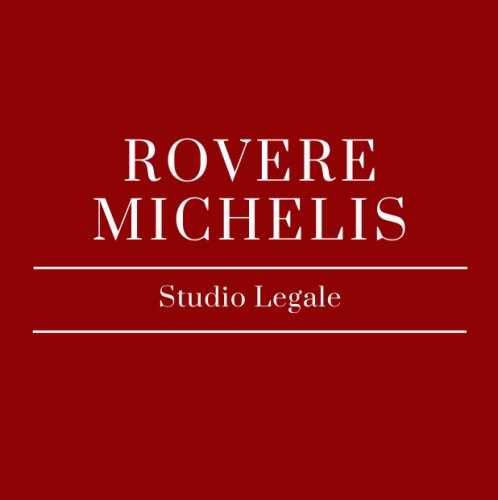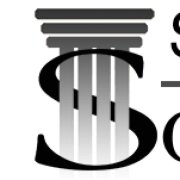Best Collaborative Law Lawyers in Sanremo
Share your needs with us, get contacted by law firms.
Free. Takes 2 min.
Free Guide to Hiring a Family Lawyer
List of the best lawyers in Sanremo, Italy
About Collaborative Law in Sanremo, Italy
Collaborative Law is a legal process designed to help parties resolve disputes amicably without resorting to traditional court proceedings. In Sanremo, Italy, this approach is particularly popular in family law matters such as divorce, separation, and child custody. The process involves both parties working together with their respective collaborative lawyers to find mutually agreeable solutions in a respectful and private setting. Collaborative Law in Sanremo follows Italian legislation and protocols but emphasizes voluntary participation, open communication, and problem-solving over adversarial litigation.
Why You May Need a Lawyer
Engaging a lawyer skilled in Collaborative Law can be essential for various situations, including:
- Divorce or legal separation, where both parties wish to avoid court disputes.
- Negotiating child custody and visitation agreements with minimal conflict.
- Dividing marital assets and debts in an equitable manner outside of court.
- Drafting comprehensive and fair co-parenting or maintenance arrangements.
- Resolving family business or inheritance disputes cooperatively.
- Maintaining confidentiality during sensitive negotiations.
- Obtaining expert guidance on Italian family and civil law as it relates to collaborative processes.
Having a lawyer ensures your interests are protected, the agreements comply with local law, and the process remains fair and balanced throughout.
Local Laws Overview
Collaborative Law in Sanremo operates within the broader Italian legal framework, which prioritizes the protection of vulnerable parties and the best interests of any children involved. Key aspects include:
- Voluntary Participation: Collaborative processes are voluntary; either party can withdraw at any time to seek alternative dispute resolution or litigation.
- Legally Binding Agreements: Outcomes reached through collaborative negotiations need to be formalized before a judge, especially in matters of divorce, child custody, and child support, for legal enforcement.
- Confidentiality: Information shared during collaborative meetings remains confidential and cannot be used in court if the process breaks down.
- Multi-Disciplinary Teams: The process may involve other professionals, such as child specialists, financial advisors, or mental health experts, to support informed decision-making.
- Legal Representation: Each party must have a dedicated collaborative lawyer; these lawyers cannot represent either party if the collaborative process fails and court involvement becomes necessary.
Sanremo follows national law, but local courts and professionals are increasingly familiar with the collaborative approach, making it a viable option for those seeking less adversarial solutions.
Frequently Asked Questions
What is Collaborative Law?
Collaborative Law is a dispute resolution process where both parties work with trained lawyers and, if needed, other professionals to resolve legal conflicts outside of court, focusing on cooperation and negotiated agreement.
How does Collaborative Law differ from mediation?
In mediation, a neutral mediator assists the parties in reaching agreement but does not represent either side. In Collaborative Law, each party has their own lawyer dedicated to guiding and protecting their interests throughout the process.
When is Collaborative Law recommended?
It is especially recommended for divorces, child custody disputes, and family business disagreements where parties wish to avoid public court battles and seek fair, mutually acceptable solutions.
Is the collaborative process legally binding in Italy?
Agreements reached must typically be submitted to the court for approval and enforcement, especially in family law matters like divorce or child arrangements, ensuring compliance with Italian law.
What happens if we can’t reach an agreement?
If negotiations break down, the collaborative process ends and new legal representation must be sought for litigation. The collaborative lawyers involved cannot represent parties in court regarding that dispute.
Is everything discussed confidential?
Yes, statements and disclosures made during collaborative sessions are confidential and cannot be used in court should the process fail, encouraging open and honest communication.
How long does the process usually take?
Duration varies by case, but collaborative procedures often resolve more quickly than court lawsuits-sometimes in a matter of months depending on the complexity and cooperation of the parties involved.
Can Collaborative Law help with complex financial matters?
Yes, financial specialists may be involved as neutral advisors to clarify and equitably resolve complicated asset, debt, or property division issues.
What should I look for in a Collaborative Law lawyer in Sanremo?
Seek a lawyer formally trained in Collaborative Law, familiar with Italian civil and family procedures, and who can work efficiently as part of a multi-disciplinary team if your situation requires it.
Is Collaborative Law available for non-marital or cross-border disputes?
Yes, collaborative approaches can be applied to various civil matters, including those involving non-marital partners or international elements, though some cases may require additional legal steps for enforcement.
Additional Resources
If you need more information or support, consider these resources:
- Sanremo Bar Association ("Ordine degli Avvocati di Sanremo") - For local lawyer directories and legal aid services.
- Italian Association of Collaborative Professionals ("Associazione Italiana Professionisti Collaborativi") - For information, protocols, and specialist contacts.
- Local Family Mediation Centers - Some also offer collaborative practice services and initial consultations.
- Sanremo Courthouse - For general information on family law procedures and court filings.
- Municipal Social Services - Assistance with social support, referrals, and counseling, particularly in family disputes.
Next Steps
If you believe Collaborative Law might suit your situation in Sanremo, Italy:
- Research and make a list of collaborative lawyers or law firms in the Sanremo area with relevant experience.
- Schedule initial consultations to discuss your needs, potential approaches, and confirm the lawyer’s expertise in collaborative practice.
- Gather and organize relevant financial, family, or business documentation that will help clarify the issues to be discussed.
- Consider involving other professionals (e.g., mediators or financial advisors) if your case is complex.
- Work with your lawyer to understand your rights, obligations, and the possible outcomes of collaborative negotiations.
- If both parties agree to proceed, your lawyers will guide you step-by-step through the process, aiming for a calm, respectful, and satisfactory resolution.
Remember, seeking collaborative legal advice early can reduce conflict, save costs, and produce more lasting and personalized agreements than traditional court processes.
Lawzana helps you find the best lawyers and law firms in Sanremo through a curated and pre-screened list of qualified legal professionals. Our platform offers rankings and detailed profiles of attorneys and law firms, allowing you to compare based on practice areas, including Collaborative Law, experience, and client feedback.
Each profile includes a description of the firm's areas of practice, client reviews, team members and partners, year of establishment, spoken languages, office locations, contact information, social media presence, and any published articles or resources. Most firms on our platform speak English and are experienced in both local and international legal matters.
Get a quote from top-rated law firms in Sanremo, Italy — quickly, securely, and without unnecessary hassle.
Disclaimer:
The information provided on this page is for general informational purposes only and does not constitute legal advice. While we strive to ensure the accuracy and relevance of the content, legal information may change over time, and interpretations of the law can vary. You should always consult with a qualified legal professional for advice specific to your situation.
We disclaim all liability for actions taken or not taken based on the content of this page. If you believe any information is incorrect or outdated, please contact us, and we will review and update it where appropriate.









